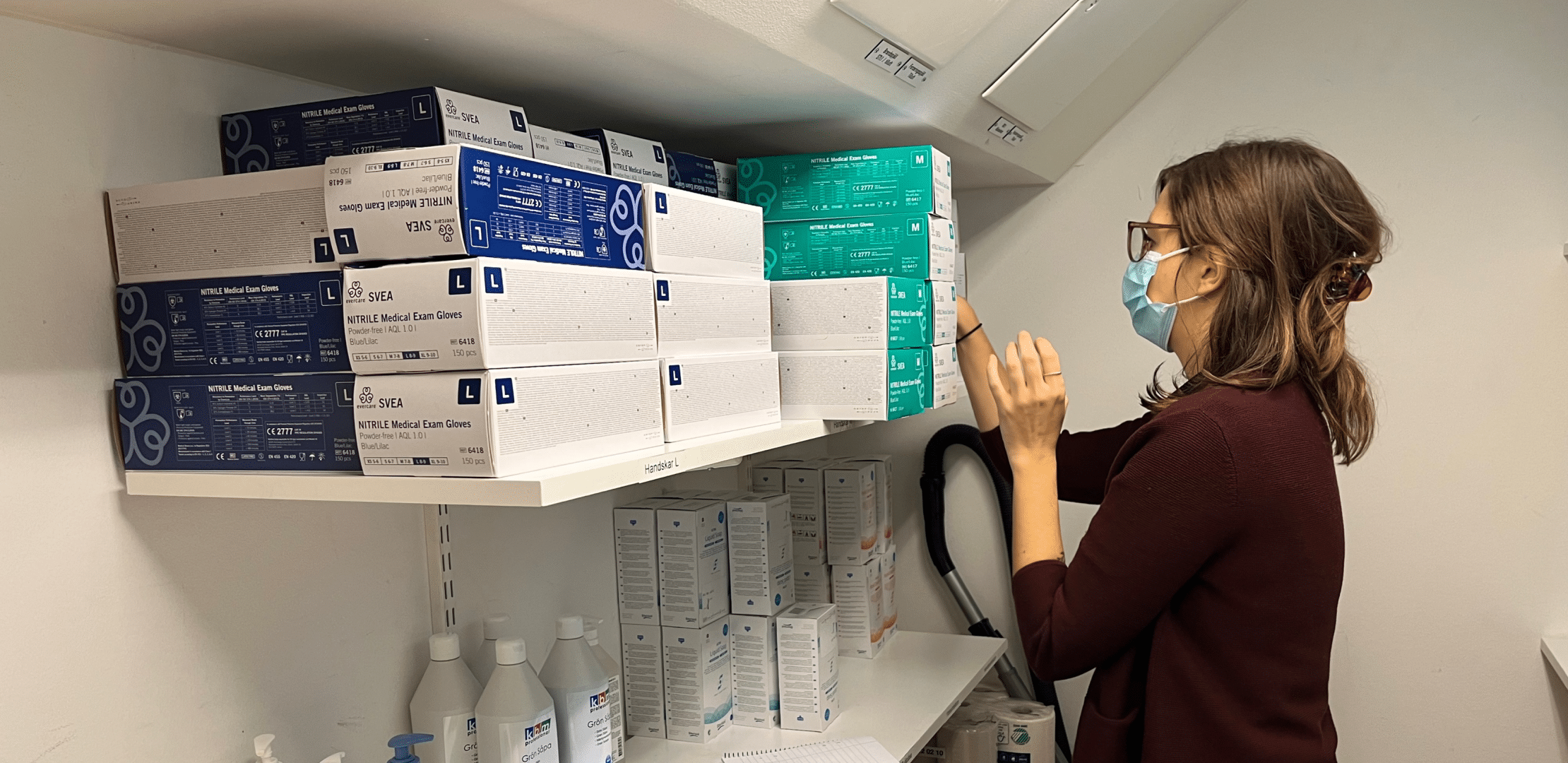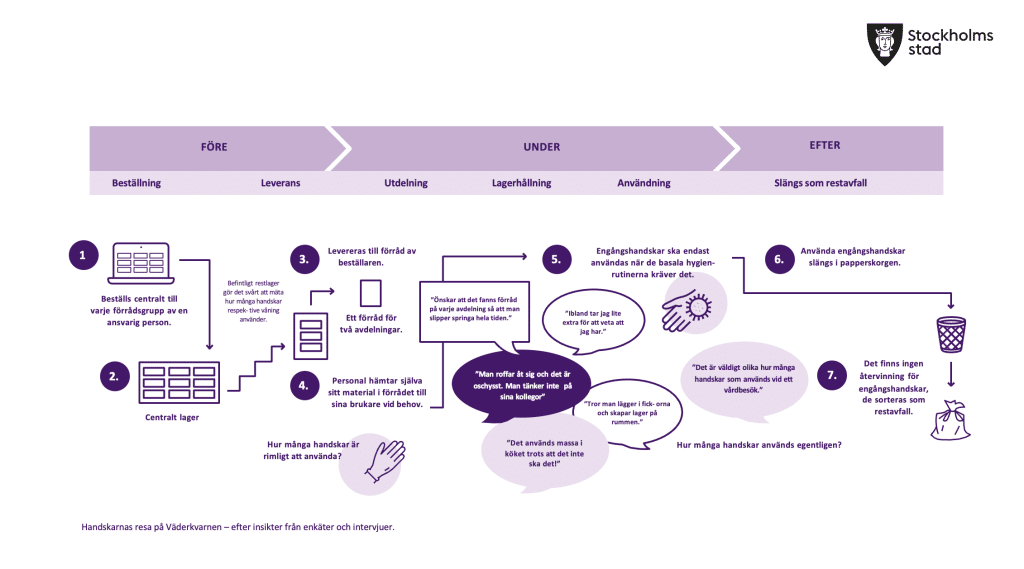Throwing away the gloves for sustainable change

Elderly care is one of the City of Stockholm’s largest users of disposable plastic products. In a collaboration with the Environmental Administration and care staff, we explored ways to reduce the use of disposable plastic gloves. The pilot project paved the way for valuable plastic savings – and now the City of Stockholm is scaling up the initiative.
The case in short
What we did
The pilot project included both the City of Stockholm’s Environmental Administration and staff at the Väderkvarnen care home. By mapping the journey of plastic gloves at Väderkvarnen, we gained a clear picture of where in the process we could have an impact. Based on this, we brought the staff together to explore which methods could best create a more resource-efficient everyday routine.
To achieve the desired changes and develop the right solutions, the working group chose to use service design in a user-driven innovation process. We focused on changing both routines and attitudes – and everyone immediately saw the potential.
The work together with Väderkvarnen resulted in several so-called nudging prototypes, which were introduced into a real environment through method testing. After a successful test, reusable dishwashing gloves in the kitchen became one of the prototypes that landed well with the staff.
“It feels like something good for us. It’s worked, you start doing it and it becomes routine. It’s automatic now, the new routines. No one uses disposable gloves in the kitchen anymore.”
– Staff member at Väderkvarnen
The method test showed that increased understanding of each other’s perspectives is a key element in this kind of change process. Asking, testing, and evaluating helps us discover what works in practice. When people feel involved, it’s easier to care about changing behaviour for the better.
But back to the plastic. The importance of understanding actual use versus desired use became clear during the process. Achieving measurable results takes time and requires measurement methods that work within the organisation. That’s why it was essential to create sustainable change where the staff (the users) were at the centre of developing the methods.
So, did we manage to reduce waste together? Yes! The test showed a potential reduction in disposable plastic gloves of up to 50 percent – without compromising the basic hygiene requirements in the care setting.
The pilot project led to Väderkvarnen beginning to reduce its use of disposable items more broadly, for example by using washable hygiene pads, seat protectors, and bibs. The switch to reusable bibs alone reduced Väderkvarnen’s waste by 2,000 bibs in a single year.
The Environmental Administration has also launched a collaborative project with the Elderly Care Administration, two municipal companies, and five district administrations. Estimates show that if all care homes could reduce their use of disposable plastic gloves by just 10 percent, the City of Stockholm would reduce its waste by one million gloves per year – equivalent to around 5 tonnes. That’s a significant positive change – and one that feels within reach.
Our pilot project demonstrated a new way of working: small-scale, resource-efficient, and tailored to the staff’s reality. Ahead of a broader organisational shift, that’s worth its weight in gold – and for Väderkvarnen, it’s already paid off.
The project with the Environmental Administration and the care staff at Väderkvarnen won the 2023 innovation award Framsteget, awarded by the City of Stockholm.
”It feels like something good for us. It’s worked, you start doing it and it becomes routine. It’s automatic now, the new routines. No one uses disposable gloves in the kitchen anymore.”
Väderkvarnen
The journey of the gloves at Väderkvarnen
